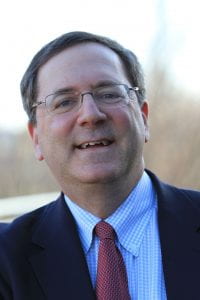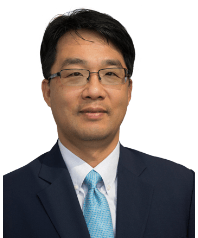On May 14th, 2021, The George Washington Institute for Korean Studies (GWIKS), the East Asia National Resource Center at The George Washington University, and The Institute for Far Eastern Studies co-hosted “Biden’s North Korea Policy and U.S.-ROK Relations” as part of the Korea Policy Forum. The event was moderated by Yonhno Kim, Associate Director of the Institute for Korean Studies, with opening remarks by Jisoo Kim, Director of the Institute for Korean Studies, and Kwan-Sei Lee, Director of the Institute for Far Eastern Studies. Ho-Young Ahn, President of The University of North Korean Studies, and Kathleen Stephens, President, and CEO of The Korea Economic Institute of America gave the opening presentation on U.S.-ROK Relations. The second presentation about U.S.-North Korea Relations was given by Frank Jannuzi, President and CEO of The Maureen and Mike Mansfield Foundation, and Jung-Chul Lee, Professor at Seoul National University. The final presentation was on Inter-Korean Relations and was given by Yeon-Chul Kim, the Former ROK Minister of Unification, and Celeste Arrington, Korean Foundation Associate Professor of Political Science and International Affairs at The George Washington University.
Professor Ahn spoke about what he hoped President Biden and President Moon Jae-In would discuss in their upcoming summit. He believes that South Korea should use a strategy of strategic clarity rather than strategic ambiguity. He predicted and encouraged the two countries to discuss Biden’s strategy of diplomacy and strong deterrence in regards to North Korea, geopolitical issues, and how to strengthen the trilateral partnership between South Korea, the U.S., and Japan. He also hoped they would discuss new frontier issues, such as the pandemic, climate change, and technology. Ambassador Stephens urged the U.S. to nurture their alliance with the ROK and to cooperate on issues such as vaccine roll-out, semiconductors, supply chains, and getting North Korea to the negotiating table. Mr. Jannuzi then spoke about what he admires about President Biden’s approach to North Korea as well as what he is wary about. He compared and contrasted Biden’s approach to that of the Obama and Trump administrations. Professor Lee then stressed the importance of President Biden showing a degree of respect towards Kim Jong-Un, rather than immediately referring to him as a threat or a tyrant, because North Korea will not be willing to negotiate in that case. Professor Kim argued it is paramount to build trust between South Korea, the U.S., and North Korea. He also asserted that China must play a key role. He argued that the most immediate negotiations must be about moving towards denuclearization and that humanitarian aid should be sent to North Korea to help with the COVID emergency. Professor Arrington ended the presentation segment by speaking about South Korean domestic politics and about how the priorities and timeline of President Moon Jae may not align with the Biden administrations’, particularly if the voting population is not most concerned about North Korea.
The presentations were followed by a roundtable discussion in which the panelists discussed the following questions: What approach can we expect from President Biden? When and how to resume nuclear negotiations with North Korea? What are the roles China can play? How can we deal with North Korea’s human rights issues? What will be the proactive rather than passive elements of Biden’s North Korea policy? In response, the panelists spoke about how paramount building trust between the three countries is but acknowledged that a high level of trust may not be possible. They also spoke about the importance of denuclearization and protecting citizens’ human rights. They were then asked audience questions about the trilateral relations between South Korea, Japan, and the U.S., as well as a question about what possible solutions to human rights violations in North Korea could be.


 David E. Sanger is a national security correspondent and a senior writer. In a 36-year reporting career for The New York Times, he has been on three teams that have won Pulitzer Prizes, most recently in 2017 for international reporting. His newest book, The Perfect Weapon: War, Sabotage and Fear in the Cyber Age, examines the emergence of cyber-conflict as the primary way large and small states are competing and undercutting each other, changing the nature of global power.
David E. Sanger is a national security correspondent and a senior writer. In a 36-year reporting career for The New York Times, he has been on three teams that have won Pulitzer Prizes, most recently in 2017 for international reporting. His newest book, The Perfect Weapon: War, Sabotage and Fear in the Cyber Age, examines the emergence of cyber-conflict as the primary way large and small states are competing and undercutting each other, changing the nature of global power.  Yonho Kim is Associate Research Professor of Practice and Associate Director of GW Institute for Korean Studies. He specializes in North Korea’s mobile telecommunications and U.S. policy towards North Korea. Kim is the author of North Korea’s Mobile Telecommunications and Private Transportation Services in the Kim Jong-un Era (2019) and Cell Phones in North Korea: Has North Korea Entered the Telecommunications Revolution? (2014). His research findings were covered by various media outlets, including Wall Street Journal, The Atlantic, Yonhap News, and Libération. Prior to joining GWIKS, he extensively interacted with the Washington policy circle on the Korean peninsula as Senior Researcher of the U.S.-Korea Institute at Johns Hopkins University School of Advanced International Studies, Senior Reporter for Voice of America’s Korean Service, and Assistant Director of the Atlantic Council’s Program on Korea in Transition. He holds a B.A. and M.A. in International Relations from Seoul National University, and an M.A. in International Relations and International Economics from Johns Hopkins University School of Advanced International Studies.
Yonho Kim is Associate Research Professor of Practice and Associate Director of GW Institute for Korean Studies. He specializes in North Korea’s mobile telecommunications and U.S. policy towards North Korea. Kim is the author of North Korea’s Mobile Telecommunications and Private Transportation Services in the Kim Jong-un Era (2019) and Cell Phones in North Korea: Has North Korea Entered the Telecommunications Revolution? (2014). His research findings were covered by various media outlets, including Wall Street Journal, The Atlantic, Yonhap News, and Libération. Prior to joining GWIKS, he extensively interacted with the Washington policy circle on the Korean peninsula as Senior Researcher of the U.S.-Korea Institute at Johns Hopkins University School of Advanced International Studies, Senior Reporter for Voice of America’s Korean Service, and Assistant Director of the Atlantic Council’s Program on Korea in Transition. He holds a B.A. and M.A. in International Relations from Seoul National University, and an M.A. in International Relations and International Economics from Johns Hopkins University School of Advanced International Studies.